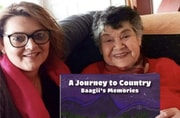‘They treat you like an it’: people with intellectual disability on seeing medical professionals
- Replies 5
This was how Richard*, who has an intellectual disability, described his general experiences with medical professionals.They don’t treat you like a person. They treat you like an ‘it’.
He was among 18 adults with intellectual disability and eight support people we spoke to for a study on how people with intellectual disability have experienced medical care. We were especially interested in experiences with genetic health care (where, for example, a person may get genetic testing to learn more about their disability).
This work, part of a broader body of research on intellectual disability and medical care, has revealed an urgent need to shift the deeply entrenched assumptions many health-care workers often hold about patients with intellectual disability.
Our research suggests health professionals need training to deliver more inclusive, person-centred and respectful health care.
Centring lived experience from the outset
This work demanded a different type of research.Our team included not just genetics researchers, bioethicists and disability education researchers but also adjunct lecturer Julie Loblinzk OAM, a mother and self-advocate leader with intellectual disability (who is also a co-author on this article).
Together, we formed the inclusive research group GeneEQUAL.
We set out to involve people with lived experience of intellectual disability in the project design, implementation and interpretation.
We’ve now produced a number of studies revealing the startling extent to which people with intellectual disability are often excluded from discussions about their own health.
People with intellectual disability told us how they generally felt cut out of their own health-care appointments, as health-care practitioners often spoke to their support person or family member instead of to them.
Many spoke of how little effort health-care professionals often put in to use accessible language or offer easy-to-read materials. As Lillian told us:
It’s very hard to read the form? Even my mum found it hard to read.
This meant people with intellectual disability were often unsure why they were having a genetic test at all.
Many felt excluded from decisions about consent for genetic tests, or even what was talked about in the appointment.
The video below shows an all-too-common experience for people with intellectual disability seeing a doctor for genetic testing.
Post-diagnosis support is often lacking
Genetic counselling is often emotionally triggering. It touches on deeply personal issues of identity, health implications for children and extended family, and future health. For example, after a genetic diagnosis Katrina said:Three participants said they’d considered suicide after their diagnosis.I feel like I’m not normal now. And I’ve told people about it, and they’re my friends and family and they don’t mean to pick on me about it, but they look like, ‘You’re just a retard. You’re not all there now’.
However, people with intellectual disability told us they were rarely connected with appropriate psychological supports after their diagnosis. There is also a shortage of these kinds of supports. One interviewee, Katarina, told us:
The deficit-based language of genetics is peppered with words such as mutation, risk, impairment and abnormality. This can reinforce people’s lifelong experiences of bullying and stigma. As Aaron told us:you’ve got to watch the way you present things to us, because we will just break down and cry and think it’s other things […] we get very, like, broken-hearted about things. We dwell on it, we stew on it.
All of this means the potential benefits of a genetic diagnosis were often wasted.In my mind, Mum has said to me, ‘You’re missing a bad chromosome’. […] I knew I wasn’t normal to others – I knew I was missing, some part of my brain has gone missing.
Virtually none of the participants in our research knew the name or nature of their genetic condition, let alone what health checks or therapies were recommended.
Worse, their ongoing health-care teams (including their GPs) were often equally in the dark.

Genetic counselling is often emotionally triggering. Shutterstock
Change is underway
Both the federal government’s National Roadmap to Improving the Healthcare of People with Intellectual Disability and the Royal Commission into Violence, Abuse, Neglect and Exploitation of People with Disability have highlighted how widespread exclusionary practices are in Australian health care.Failing to address this means fewer people with intellectual disability getting health checks and screenings, leading to poorer long-term health. The average life expectancy of Australians with intellectual disability is already shockingly low compared to the general population.
But slowly, change is underway.
Based on our research, NSW Health funded our team to work with self-advocacy groups and health-care professionals to co-produce the GeneEQUAL Educational Toolkit. This resource empowers medical professionals to deliver better, more equitable genetic healthcare and features Easy Read booklets about genetic conditions and clinics.
People with intellectual disability identified three key guiding principles. Health-care professionals need to:
- make reasonable adjustments, such as allowing long enough appointments to explain options in an understandable way
- practice person-centred care, such as making genetic reports and letters available in Easy Read (a style of presenting information simple and easy-to-understand ways) and ensuring the genetic diagnosis and management plan is shared with the patient themselves, their support person and their clinical team
- offer choices and deliver trauma-informed care, given the high rate of abuse and stigma experienced by people with intellectual disability; language should be strengths-based and environments welcoming.
*Names changed to protect identities. If this article has raised issues for you, or if you’re concerned about someone you know, call Lifeline on 13 11 14.
This article was first published on The Conversation, and was written by Elizabeth Emma Palmer,Senior clinical lecturer in medical genetics, UNSW Sydney, Iva Strnadová, Professor, UNSW Sydney, Jackie Leach Scully, Professor of Bioethics, Director of the Disability Innovation Institute UNSW, UNSW Sydney, Julie Loblinzk, Adjunct Lecturer at School of Education, UNSW Sydney







